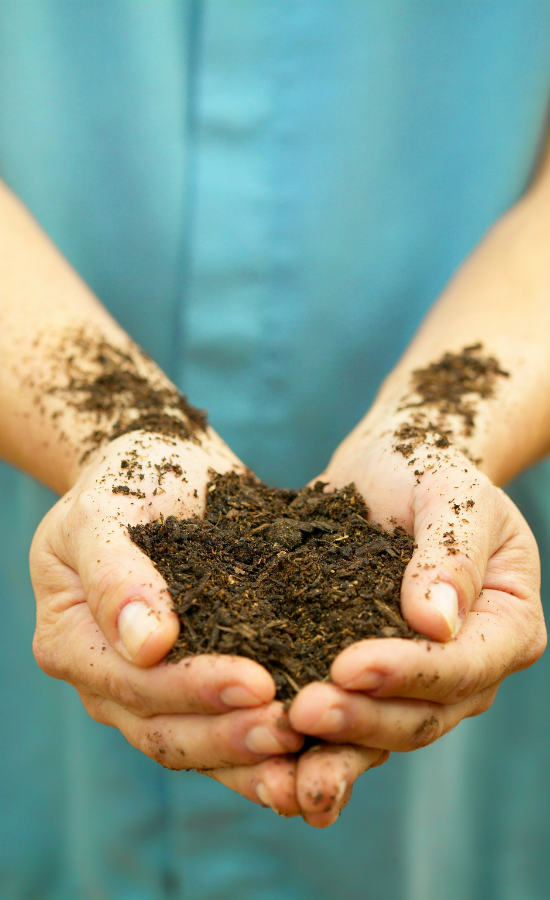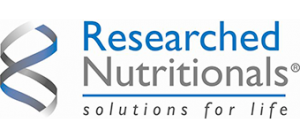We live in a sterile world of hand sanitizers and processed food. Parents have forgotten the five second rule where if a food falls onto the floor, it is safe to eat if picked up within five seconds. Children have their hands washed before they eat, after they eat, after they play outside. The result is that they don’t grow up eating dirt. Without some intake of dirt, their immune systems don’t have exposure to soil based organisms for proper development. These organisms continue to support our immune system as we grow older. Our dirt-free world has created a growing problem of children and adults with allergies, asthma, eczema and digestive problems.
Food used to be fresh from farms and gardens complete with a few soil-based organisms. Now it is heated, processed and packaged. Currently we are finding some of these soil-based bacteria are beneficial for our digestive and immune systems. In fact, they were traditionally a part of our microbiome. Bacillus subtilis, a common soil-based bacterium, was discovered to be part of the human microbiome back in 19151 After recognizing its role in the immune system, it was used for gastrointestinal and urinary tract illnesses before the widespread use of antibiotics.

In the soil, bacteria have functions like the probiotics in our intestine. They break down plant material and make vitamins to support plant growth. These bacteria also produce multiple anti-microbial compounds to deter growth of pathogenic organisms. Organic fertilizers often have these soil-based bacteria to foster plant growth.
Soil-based bacteria are also referred to as spore based bacteria. These bacteria need to survive in the unpredictable environment of the soil so form an outer shell of protection called a spore. Advantages to the spore form, in addition to protection in the soil are the ability to survive stomach acid. The spore form protects them from both stomach and bile acid so they pass easily into the intestines where they can colonize2. In contrast, dairy based lactic acid bacteria such as lactobacillus and bifidobacterium are much more susceptible to degradation in the stomach. Because of this susceptibility, much higher doses or CFU’s are recommended for these dairy based probiotics.
In the wisdom of nature, soil-based bacteria can form spores in the soil to survive and then leave the spore form upon reaching the intestines. Once the bacteria lose their spores, they produce lactic acid. The lactic acid has anti-bacterial properties to prevent growth of pathogenic bacteria while fostering the growth of beneficial lactobacillus and bifidobacteria3. Bacillus Subtilis alone has been found to produce 66 anti-bacterial compounds4. These soil-based organisms can also colonize the intestine for longer survival. The colonization allows them the ability to crowd out pathogenic bacteria3. Once colonized the immune system is supported through cell signaling and interaction with intestinal cells5,6,7.
Research has shown benefits of these soil-based probiotics for a variety of health concerns. Relief in digestive disorders with symptoms of abdominal pain, bloating, and diarrhea have improved8,9. Clinical trials in bacterial vaginosis showed symptomatic relief10. Metabolic problems with blood sugar and lipid control are very common and not usually treated with probiotics. Both conditions showed improvement with soil-based probiotics3,11.
As we learn more about the microbiome and its complex interplay in our bodies, our understanding of its impact on different illnesses will only continue to expand.
New concepts always come with new concerns. Are soil-based probiotics safe? The fact that we were naturally exposed to these organisms from dirt and food is reassuring. In addition, Bacillus Subtilis and Bacillus Coagulans were isolated as part of the human microbiome early in the last century. Scientific advances in genetic sequencing have rapidly increased the safety of probiotics, including soil-based probiotics. Not only are we able to isolate probiotic bacteria but we can study specific strains. For example, instead of Bacillus coagulans we can identify and study Bacillus coagulans MTCC 585612. Advent of genetic sequencing has added the benefit of knowing the exact organism in a product. Both safety and efficacy are increased with this technology.
We are only beginning to learn the large number and species naturally present in our microbiome and the multitude of functions they serve. Adding soil-based bacteria into our microbiome seems to be a healthy and safe plan to support digestive and immune health. Another step toward health might include eating some dirt with our fresh fruit and vegetables.
- Bacillus subtilis spores as a natural pro-host oral agent. Preliminary data in children. Novelli A. et al. Chemioterapia. 1984; 3:152–155.
- Acid and bile tolerance of spore-forming lactic acid bacteria. Hyronimus B. et al. In J Food Microbiol 2000.
- Tolerance and Efficacy of the Probiotic DE-111™ Delivered in Capsule Form. Gina M.
- Labellarte et al. Department of Biology, University of Wisconsin- La Crosse.
- Production of antimicrobial metabolites by Bacillus Subtilis immobilized in polyacrylamide gel. Awais Et al. Pakistan. J Zool. 2010 42(3): pp 267-275.
- Secretory immunity in the local digestive functions. Use of spores of B. subtilis in some forms of disease with IgA deficiency and hypogammaglobulinemia. Bonomo R, et al. Chemioter Antimicrob. 1980; 3:237–240.
- In vitro effects of Bacillus subtilis on the immune response. Ciprandi G, Scordamaglia A, Venuti D, Caria M, Canonica G W. Chemioterapia. 1986; 5:404–407.
- Probiotics-Host Communication: Modulation of Signaling Pathways in the Intestine. Thomas, Carissa M, and James Versalovic. Gut Microbes. 1.3 (2010): 148–163. PMC. Web. 24 Feb. 2015.
- Bacillus coagulans significantly improved abdominal pain and bloating in patients with IBS. Hun, L. Postgrad Med. 2009.121:119-124.
- Bacillus coagulans MTCC 5856 supplementation in the management of diarrhea predominant Irritable Bowel Syndrome: a double blind randomized placebo controlled pilot clinical study. Majeed M. et al. Nutr J. 2016 Feb 27; 15:21. doi: 10.1186/s12937-016-0140-6.
- Clinical study of Bacillus coagulans Unique IS-2 (ATCC PTA-11748) in the treatment of patients with bacterial vaginosis. Sudha, R.M. et al. Indian J. Microbiol. 2012. 52(3):396-399.
- Effect of supplementation of Bacillus coagulans Unique IS-2(ATCC pat-11748) on hypercholesterolemic subjects: a clinical study. Sudha, R.M. et al. Inter. J. Probiotics Prebiotics. 2011. 6(2):89-94
- Double-Blind, Placebo-Controlled, Parallel Study Evaluating the Safety of Bacillus coagulans MTCC 5856 in Healthy Individuals. Majeed M. et al. J Clin Toxicol. 2016.
Share:
Related Posts

Benefits of Creatine in Perimenopause and Menopause
Written by Maura MacDonald, MS, RD, CSSD | 2025 As we age, the notion is that we will inevitably become weaker. Not as mobile as

Goodbye Pie Chart, Hello Phase 1 Sliders
Written by Allison Smith, ND | 2025 As we usher in a new era of DUTCH testing which leaves behind the concept of the three-way

Introducing the DUTCH Dozen
Written by Kelly Ruef, ND | 2025 Hormone testing can be complex, which is why Precision Analytical developed the DUTCH Dozen, an interpretive framework that

DUTCH Report Enhancements
Written by Hilary Miller, ND | 2025 Precision Analytical have released the newest version of the DUTCH Test. This is the report’s most significant update

Gallbladder Health 101: What It Does and How to Keep It Working Well
Written by Ashley Palmer & Pooja Mahtani | 2025 The gallbladder may not get much attention compared to the gut, but it plays a central


